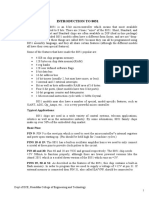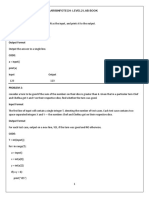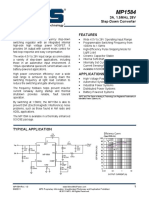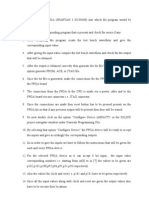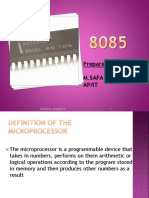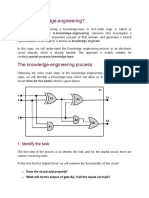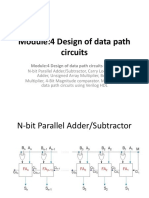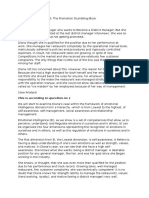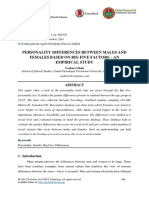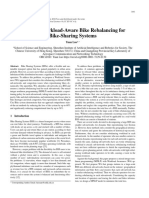0% found this document useful (0 votes)
682 views16 pages4 - Bit ALU Using Verilog
This document describes a group project to create a 4-bit ALU using Verilog code. It provides the names of the two group members and the name of the project. It then includes code for the top-level ALU module and several lower-level modules including an adder/subtractor, comparator, logical, and shifter modules. Descriptions and comments are included in the code to explain the functionality of each module and how they interact.
Uploaded by
Trần Trúc Nam HảiCopyright
© © All Rights Reserved
We take content rights seriously. If you suspect this is your content, claim it here.
0% found this document useful (0 votes)
682 views16 pages4 - Bit ALU Using Verilog
This document describes a group project to create a 4-bit ALU using Verilog code. It provides the names of the two group members and the name of the project. It then includes code for the top-level ALU module and several lower-level modules including an adder/subtractor, comparator, logical, and shifter modules. Descriptions and comments are included in the code to explain the functionality of each module and how they interact.
Uploaded by
Trần Trúc Nam HảiCopyright
© © All Rights Reserved
We take content rights seriously. If you suspect this is your content, claim it here.
/ 16
